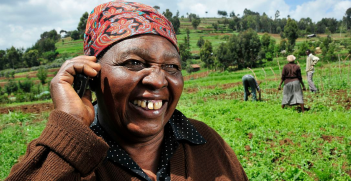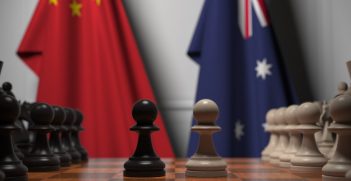The Maldives Election Results: Locating India’s Place in the New Government

The China-leaning Mohamed Muizzu has conquered his rival, India-leaning opponent to claim the presidency of the Maldives. This outcome will likely ensure a recalibration of Maldivian foreign policy, but not as much as some fears may suggest.
The Maldives’ main opposition PPM/PNC coalition (Progressive Party of the Maldives and People’s National Congress) candidate, Mohamed Muizzu, defeated incumbent pro-India president Ibrahim Mohamed Solih of the Maldivian Democratic Party (MDP) at presidential polls held on Saturday, widely seen as a contest between China and India.
Elected on the back of a nationalist platform, the incoming government will seek to put the brakes on certain aspects of the strategic and “soft power” foothold of India in the Maldives.
This attempt at foreign policy recalibration will not necessarily lead to a substantive Chinese strategic foothold in the Maldives. If New Delhi reacts positively to this attempt, which hasn’t been the case in the past, the Maldives will still likely prioritise India as its strategic partner, while claiming greater autonomy to diversify relations with other countries.
This recalibration could even open greater space for countries such as Australia to move beyond a dominant India-centric lens to approach the Maldives. But if consolidating democracy in the Maldives is a priority, there is reason to be cautious given past experience, and the autocratic turn under the previous PPM/PNC government.
Understanding domestic factors shaping Maldivian foreign relations
As a vulnerable small state, the Maldives has extremely constrained space for strategic autonomy. However, domestic factors have partly shaped its foreign relations, including the dramatic rise of China in the Maldives under the previous PPM/PNC government (2014-2018).
Three factors have been particularly important: transitional politics, rising public expectations over socio-economic imperatives, and religious nationalism.
First, the Maldives has gone through a political transformation since 2003. It was when the Maldives came under sustained international pressure over its human rights violations and authoritarianism since around 2003 that the country started to deepen and diversify its external relations, including a turn toward China.
Second, public expectations around socio-economic policies following democratisation since around 2008 have increased. Successive governments have actively courted socio-economic projects with enormous amounts of capital and aid. The Maldives saw in China a more willing and able partner in this respect. In fact, the Maldives received its first loan from China’s EXIM bank in 2010, valued at US$74 million, for a public housing project under an otherwise pro-India MDP government. Chinese-led projects were considered at the time more efficient compared to India’s – which arguably negatively affected Solih’s campaign, as key Indian infrastructure projects failed to materialise in time.
These two factors were at play and coincided with Xi Jinping’s ambitious Belt and Road Initiative during the PPM/PNC government, and Chinese aid and loans for infrastructure development in the Maldives has increased considerably since 2014. The most iconic of Chinese-funded infrastructure projects is the Maldives’ first cross-sea bridge, branded the China-Maldives Friendship Bridge, valued at over US$224 million. The Maldives also signed its first Free Trade Agreement with China in 2017. Overall, by 2019, the Maldives owed about US$1.2 billion to China, representing over half of its external debt.
A third factor that shapes foreign policy orientation, especially for the PPM/PNC, is religious nationalism. As a small state, the Maldives is very conscious of real or perceived interference by external powers. This consciousness, combined with an Islamic flair about colonial intervention, forms the bedrock of Maldivian national identity. Narratives about how a 16th-century Maldivian sultan converted to Christianity and fled to the Portuguese colony of Cochin – now Kochi, India – play into fears about threats to Islam and national sovereignty.
Muizzu has galvanised his supporters on this nationalist platform. He has suggested the presence of Indian navy and technical personnel operating two Advanced Lightweight Helicopters and a Dornier Aircraft in three strategic locations in the Maldives is a threat to the independence and sovereignty of the Maldives. He will therefore seek to send back Indian crews and possibly request New Delhi to take back the helicopters and the aircraft.
Averting an Indo-Maldives crisis
Historically, New Delhi has refused to adjust its strategic ambitions in the Maldives. In reaction to Chinese economic inroads, and the perceived geo-economic implications under the previous government, India attempted to secure an exclusive strategic position in the country.
In 2016, India signed a comprehensive Action Plan for Defence under the PPM/PNC government. It also sent a second Advanced Lightweight Helicopter (the first in 2010 under the MDP government) to the Maldives along with an Indian crew to operate it based in the strategic central atoll of Laamu.
However, Indo-Maldives relations soured as Chinese economic inroads were made, and with India’s censures over former president Abdulla Yameen’s authoritarian activities, the Maldivian government refused to renew the necessary documentation for Indian crew operating the helicopters. Malé requested New Delhi to take back the assets and the crew, and went to the lengths of filing a complaint with the UN Secretary General.
New Delhi, reactively, refused to take back the aviation assets and the crew, and instead flexed its muscles. It tightened exports of essential goods and construction sector materials, and restricted visas for Maldivians. It was only when pro-India President Solih of MDP came to power in 2018 that a more serious crisis was averted.
Solih’s government welcomed back India and deepened strategic and economic relations with New Delhi. Under the Solih administration, India overtook China in all aspects, including providing loans and building infrastructure. Today the Maldives owes a lot more to India than to China. The Indian Reserve Bank has also helped to ease Maldivian foreign reserves through dollar swaps, and New Delhi has also more vigorously promoted Indian “soft power” such as yoga through a cultural centre in the Maldives.
Beyond India-China rivalry
The incoming president, who will be sworn in on 17 November has already stated his biggest challenge will be dealing with India. However, it is more likely the new government will seek to recalibrate the more visible aspects of the strategic relationship, including seeking to send back Indian crews in the Maldives to satiate the nationalist sentiments of his supporters.
If New Delhi concedes to this recalibration, the new government will still likely consider India as its main strategic partner, while further diversifying its external relations with other countries, including China. The PPM/PNC coalition certainly views the rise of China in more benign terms. Yet, the Maldives is unlikely to develop a substantive defence and strategic relationship with China. Instead, Muizzu has indicated he would diversify external economic relations, seeking capital and investments from other countries, including China, which no doubt carries geo-economic implications. He has called this a “Pro-Maldives Policy” foreign policy.
Indeed, after an initial move towards what amounted to an “India only” policy, incumbent Solih’s government itself has attempted to recalibrate its strategic and foreign policy orientation. The signing of a Defence Agreement with the US in 2020 is an example.
However, Western countries such as Australia have for the most part approached the Maldives through an India-centric lens. This is understandable given New Delhi’s sensitivities and the broader Indo-Pacific Strategy and cooperation through the Quad.
A new orientation under the new government of Mohamed Muizzu means that countries such as Australia can approach the Maldives through a less India-centric lens. For a more impactful relationship with the Maldives, Western countries could deepen ties in areas such as education, strengthening governance institutions, and in addressing climate change.
Why caution may be needed
However, there are risks if consolidation of even a minimalist democracy in the Maldives is a priority.
By relying on Chinese capital and aid, former President Yameen was able to nearly derail democracy in the Maldives. And when international organisations and Western countries censured his government, it further pushed him towards China.
Incoming President Muizzu was a cabinet minister under Yameen, overseeing the Chinese mega-projects in the Maldives. He may have learned from Yameen’s mistakes (who was defeated in 2018 elections), and therefore not attempt to lead the country in a downward spiral toward autocratisation.
Understanding the domestic factors – socio-economic imperatives, transitional politics, and religious nationalism – shaping the Maldives’ foreign policy directions are therefore crucial in averting not just an Indo-Maldives crisis, but also helping consolidate democracy in the Maldives.
Dr Azim Zahir is a Research Fellow and lecturer at the School of Social Sciences, International Relations, Asian Studies & Politics, The University of Western Australia.
This article is published under a Creative Commons License and may be republished with attribution.





